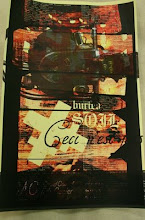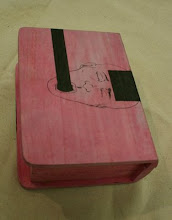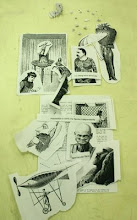[The following was originally posted here May 31, 2012. It has been updated with images.]
Cornell, a mainstay of this class, gets a shout-out in Anthony Lane's elegant, even moving, review of Moonrise Kingdom:
[Anderson] is often spoken of as an arch-geometrician, drawn to cinema by the orders of symmetry that it allows him to impose. However, when I watch those graceful sideways tracking shots of his--through the Bishop residence, at the start of the new film, or along the train carriages, at the end of "The Darjeeling Limited"--what I sense is not a technical tic but a pressing need to bind people together even as they threaten to pull apart. (Anderson's parents, we may note in passing, divorced when he was eight.) Certain makers of musicals, like Stanley Donen and Vincente Minelli, were fêted or decried for their organizational verve and a fetishistic appetite for color; only with time did it emerge that what they sought was a shape for emotional longings, and that could happen here, too. Who knows, we may look back on Anderson's works as we do on the boxes of Joseph Cornell--formal troves of frippery, studded with nostalgic private jokes, that lodge inexplicably in the heart.
- from the New Yorker (the science fiction issue, May 2012)
Joseph Cornell, Untitled [Medici Princess] (1948)
Wes Anderson, shot from Moonrise Kingdom (2012)

















































































No comments:
Post a Comment